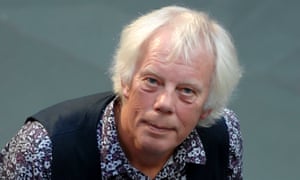Like his creator, Philip Murdstone is a prize-winning children’s writer who lives in rural Devon. Let’s assume that’s where the similarities end, for Philip is morose, solitary and poor, and his prize-winning days are, alas, behind him.
His agent – the sexy, rapacious and despairing Minerva Cinch – outlines his predicament: the previous tax year, his five books earned Philip £12,000. Actually, that’s a pretty impressive salary by the Society of Authors’ standards, and one Philip can just about survive on. But, to Minerva, 15% of not much is appallingly little – “You may be perfectly content in your badgery little cottage living on poached mice and hedge fruit, but my tastes run a little richer. Eighteen hundred hardly pays for lunch for a week.”
Minerva instructs our hapless hero to turn to the surefire money-spinner that is fantasy – or, better, phantasy “with a pee aitch”. It’s all pretty straightforward, Minerva assures him: the setting will be an intermittently magical world, called something like the Realm, withering under the rule of a Dark Lord. His minions – “That’s a word you must use, OK?” – oppress the populace of dwarves (who live underground), elves (who live in the woods) and humans (who live in either walled cities or cutesy thatched hamlets).
As for the story, that has to be based on a Quest, which must feature a dragon, a special sword and some magick with a k. The thing being quested for has to be a mystical amulet or similar, with whose powers the Dark Lord can be overthrown and bucolic order restored to the Realm.
Philip dutifully tackles a random reading list of phantastic fiction – The Alchemist’s Daughter, parts I and II, Dragon Summoner vol 1, The Sword of Nemesis IV, The Firedrake’s Pestle, parts VII and IX … His mind remains a depressed blank. Until, one lunchtime, he gets hammered on a real ale warningly named Dark Entropy. He falls asleep and is visited by a long, clear and detailed dream of an entire phantasy – story, cast and landscape, from the plains and forests of the Realm to the yonder-distant Thule of Morl.
Dark Entropy and its successor, Warlocks Pale, bring Philip fame, fortune and, doubtless best of all, a rave review in the Guardian. But Philip has bought the success of both books in a Faustian pact. As the Realm starts to take over his world, will he complete the trilogy? Or will the trilogy finish him off?
Not many novels about novelists are as acute or as entertaining as this: a genuinely funny comedy that takes the piss – out of Devon, the writer’s lot, the whole fantasy genre – with a Pratchettian mix of gusto and warmth. The latter quality is particularly helpful in the literary satire, which skewers the tropes of an entire genre while managing to keep the phantastic storyline going as a valid part of the plot.
Peet’s prose also boasts a Pratchettian vigour and invention, most obviously in the exotic “gremes” and “porlocs” of the Realm but also in the diurnal comedy of the real world. This may be Mal Peet’s first book for grownups, but it is an assured, even virtuoso, performance fully deserving that most prestigious of accolades – a rave review in the Guardian.
• Harry Ritchie’s English for the Natives is published by John Murray. To order The Murdstone Trilogy for £11.99 (RRP £14.99) go to bookshop.theguardian.com or call 0330 333 6846.

View all comments >
comments
Sign in or create your Guardian account to join the discussion.
This discussion is closed for comments.
We’re doing some maintenance right now. You can still read comments, but please come back later to add your own.
Commenting has been disabled for this account (why?)